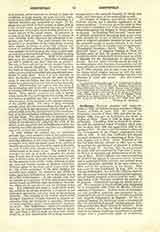

Coeffeteau, NICOLAS preacher and controversialist, b. 1574, at Chateau-du-Loir, province of Maine, France; d. Paris, April 21, 1623. He entered the Dominican convent of Sens, 1588, and after his profession, 1590, was sent to St-Jacques, the house of studies at Paris. There in 1595 he began to teach philosophy. On May 4, 1600, he received the doctor-ate and was appointed regent of studies, which position he filled until 1606 and again from 1609 to the spring of 1612. He also served two terms as prior and was vicar-general of the French congregation from 1606 to 1609. At this time Coeffeteau had already acquired distinction by his preaching at Blois, Chartres, Angers, and in Paris. Queen Margaret of Valois had made him her almoner in 1602, and in 1608 he received the appointment of preacher in ordinary to King Henry IV. In June, 1617, he was proposed by Louis XIII and confirmed by Pope Paul V as titular Bishop of Dardania and Administrator of the Diocese of Metz. By his vigilance and zealous preaching he checked the spread of Calvinistic errors, renewed and reestablished Divine services, and restored ecclesiastical discipline, especially in the great abbeys of Metz and in the monasteries of the diocese. After four years he was transferred, August 22, 1621, to the Diocese of Marseilles; but ill-health kept him from his see. He secured Francois de Lomenie as his coadjutor, but he himself remained at Paris until his death. He was buried in St. Thomas’s chapel of the convent of St-Jacques. Coeffeteau’s writings are chiefly polemical. Five treatises on the Eucharist were occasioned by a controversy with Pierre du Moulin, Calvinist minister of Charenton. Another series on ecclesiastical and pontifical authority was prompted by the action of the French Protestants in relation to political and religious disturbances in England. At the request of Gregory XV, Coeffeteau wrote a refutation of the “De Republica Christiana” by the apostate Archbishop of Spalato, Marc’ Antonio de Dominis. In all these writings, at a time in which partisanship was wont to be violent, Coeffeteau maintained an equable temper and a praiseworthy spirit of moderation, always handling his subjects objectively and dispassionately. His erudition was extraordinary and he was possessed of a rare and penetrating critical judgment. On the question of papal power and authority, Coeffeteau’s position is described as that of a modified Gallicanism. He held that the infallibility of the pope or of an ecumenical council was restricted to matters of faith and did not bear upon questions of fact or of persons. A council, he held, was not superior to a pope except in the case of schism, when it could depose the doubtful incumbent to elect one whose right and authority would be beyond question. In this Coeffeteau differed from the Sorbonne, which asserted the council’s superiority in all cases. Besides being called the father of French eloquence, Coeffeteau was a recognized master of the French language. He was the first to use it as a means of theological expression, and the purity of his diction, especially in his historical writings and translations, is admitted and commended by many excellent authorities.
JOHN R. VOLZ

